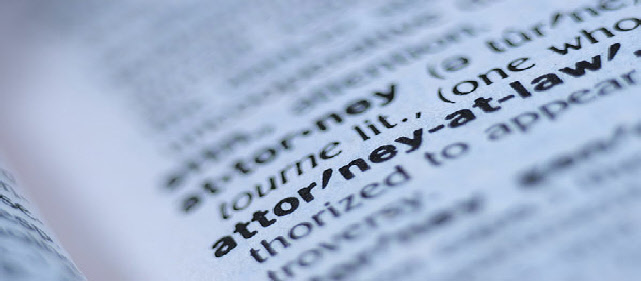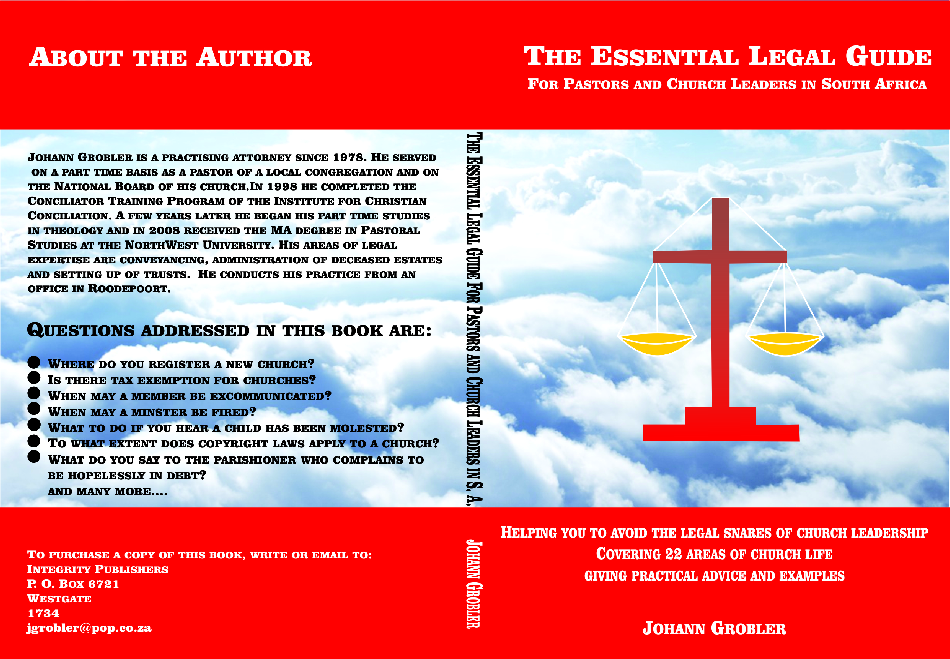
A T T O R N E Y S , C O N V E Y A N C E R & N O T AR Y
P R O K U R E U R S , A K T E B E S O R G E R &
N O T A R I S

Johann Grobler
& Associates
& Associates

We are a small firm, achieving great results. Our clients have the benefit of effective professional service together with the personal attention that only a small firm can provide. Two key words describing our values are “integrity” and “efficiency.”
Our focus is on non-litigation work for clients, especially winding up of deceased estates, property transfers and antenuptial contracts.
The conveyancer and notary is Mr Johann Herman Grobler.
Contracts
ANTENUPTIAL CONTRACTS
LAST WILL AND TESTAMENT
Testimonies
Video Town Group
Martha Jacoba van der Berg
Tinus Pretorius by Sonskyn Eiendomme Agentskap
Mike Kossmann
Rachel
Yolanda
Selwyn
Christo Luüs
Our focus is on non-litigation work for clients, especially winding up of deceased estates, property transfers and antenuptial contracts.
The conveyancer and notary is Mr Johann Herman Grobler.
Contracts
ANTENUPTIAL CONTRACTS
LAST WILL AND TESTAMENT
Testimonies
Video Town Group
Martha Jacoba van der Berg
Tinus Pretorius by Sonskyn Eiendomme Agentskap
Mike Kossmann
Rachel
Yolanda
Selwyn
Christo Luüs
Conveyancing
The term “conveyancing” refers to the process of transferring the property. The conveyancer is the attorney
who is also qualified as a conveyancer and who has been entrusted to attend to the transfer. It is the Seller’s
We will, where necessary, draw up the contract of sale of property (“Offer to Purchase”), which has to be in
writing in terms of our law. Where estate agents are involved in putting together the transaction, they usually
use their standard form. The Seller may still ask his conveyancing attorney to check the contract before he/she
signs. Where we have been nominated as the Conveyancers, we do not charge a fee for checking the contract.
Most transactions are subject to the condition (called a suspensive condition) that a loan be obtained by the
purchaser for a minimum amount within a specified time. Until the suspensive condition has been fulfilled, the
transaction is hanging in the air.
We usually get instructions once the bond has been approved. We then immediately do a Deed Search and
start drawing up the conveyancing documents and writing the necessary letters to get the finances and
clearances in place.
What you as Seller can do…
•
Make sure the conveyancing attorney has the correct details of your existing bond account.
•
Be prompt in providing the conveyancing attorney with the required FICA documentation and information e.g. your income tax number and proof of your residential address that is less than three months old.
•
Ensure you are up to date with your rates and water and lights or levies payments, as may be applicable.
•
Make sure your tax affairs are in order at SARS, since they can block the transfer process.
•
If it is a sectional title, make sure the conveyancing attorney has the contact details of the managing agents or chairman of the Body Corporate.
•
If it is a conventional property, he should be given a recent copy of your municipal rates statement.
•
Budget for the following expenses on your side:
•
your portion of rates/levy clearance
•
bond cancellation costs of app. R 4000,00 per bond.
•
costs for obtaining electrical compliance cert.
•
estate agent’s commission
•
transfer costs if it is payable by seller in terms of the contract
•
Provide the conveyancing attorney with details of the Bank account where net proceeds is to be deposited or transferred.
In broad terms it can be said that all conveyancing matters require certain documentation and certain financial arrangements. If the documents and the money are in place, then lodgement can take place at the relevant Deeds Office.
There are in a regular transfer of property matter about 48 different steps to be taken until the matter is finalised. Most of these steps are done concurrently. Some steps can however only be taken once the other steps have been finalised. The conveyancer can for example in most matters only request guarantees once he has received cancellation figures on the existing bond. He can only apply for a rates clearance certificate once he has received rates clearance statement and the funds to pay the required amount is available in his trust account.
Examples of such hardship:
The ex-spouse inherits because the deceased forgot to change his Will.
There is a dispute in the family of who should be the executor, causing delays in the winding-up process.
The wife has to buy out the children’s shares because the Intestate Succession Act is applicable since the deceased left no Will.
A Will is relatively inexpensive. Why not make an appointment with an expert to make sure it is in place. Nobody knows when it is his/her last day.
There are in a regular transfer of property matter about 48 different steps to be taken until the matter is finalised. Most of these steps are done concurrently. Some steps can however only be taken once the other steps have been finalised. The conveyancer can for example in most matters only request guarantees once he has received cancellation figures on the existing bond. He can only apply for a rates clearance certificate once he has received rates clearance statement and the funds to pay the required amount is available in his trust account.
Examples of such hardship:
The ex-spouse inherits because the deceased forgot to change his Will.
There is a dispute in the family of who should be the executor, causing delays in the winding-up process.
The wife has to buy out the children’s shares because the Intestate Succession Act is applicable since the deceased left no Will.
A Will is relatively inexpensive. Why not make an appointment with an expert to make sure it is in place. Nobody knows when it is his/her last day.
ENGLISH MENU
Home Page
Profile of Johann Grobler
Services
Last Will And Testament
Antenuptial Contracts
Selling Your Property
Information Act
Transfer Duty
Residential Lease
Newsletter
Trust
AFRIKAANS KITSSKAKELS

